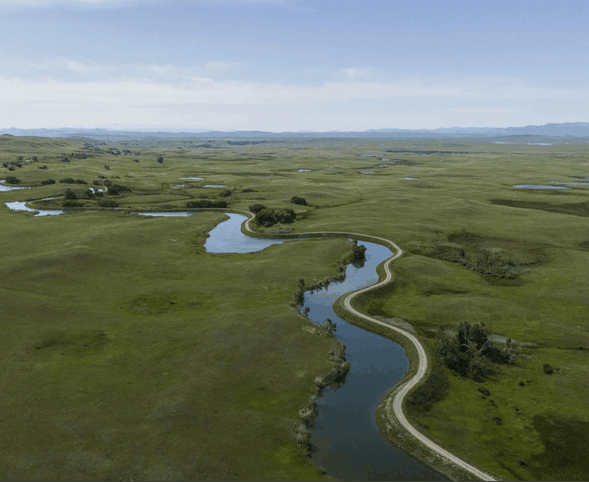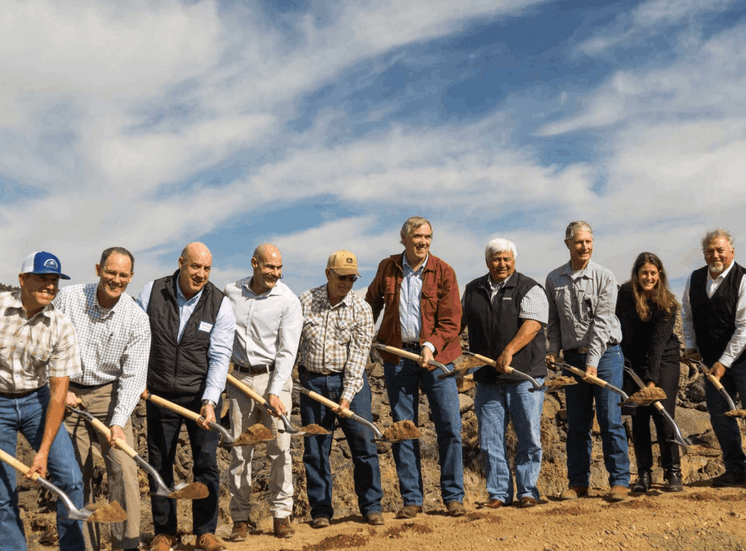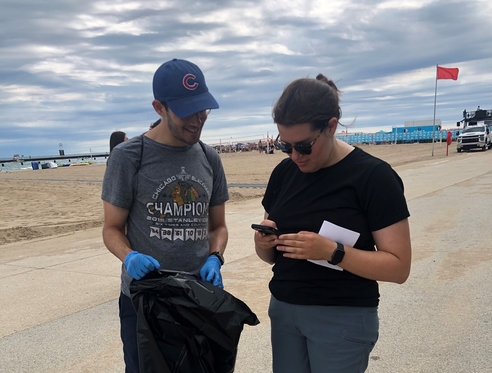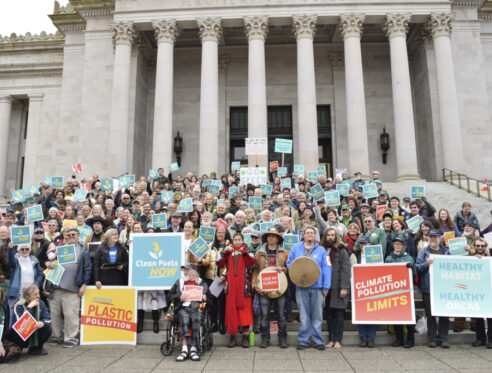About FCA
Farmers Conservation Alliance (FCA) is a nonprofit social enterprise that works with farmers, ranchers, and irrigators to modernize water delivery systems throughout the American West.
In its work, FCA partners with rural communities, managing on-the-ground projects to upgrade aging infrastructure and save water and operating costs, while increasing water security, restoring streams, protecting fish, and generating green, renewable energy. The organization takes a holistic approach, often making multiple improvements at the same time for maximum effectiveness.
The Challenge
Farmers Conservation Alliance works with numerous governmental agencies—both federal and regional—and private foundations to fund improvement projects in over 50 irrigation communities in seven western states in the US. Internally, it’s been no small feat to track FCA’s complex projects and funding agreements, especially as the organization has rapidly scaled.
In just eight years, with help from growing federal capital and word of mouth, their focus projects have expanded from operations in Oregon alone to projects in seven states, their operating budget has grown from a few million dollars to $16M, and their staff has expanded from 20 to 43.
“It's a very complicated matrix of how the funding relates to the different communities that we work with and the different projects that we're moving forward,” explained Alan Horton, managing director of FCA. “Our primary goal in engaging Percolator—at least for our first phase of work with them—was to help us organize that complicated flow of contracts, funding, and projects across our organization.”
FCA had been using a series of increasingly sophisticated spreadsheets to track their funding agreements. These worked well at a smaller scale, but the organization was outgrowing them and using an enormous amount of administrative time to keep them up. “The ability of our management team to keep track of everything was becoming impossible,” Horton said. The team also wanted to be able to project forward and anticipate resource issues in time to address them.
The Solution
Farmers Conservation Alliance had an existing Salesforce system. It had been set up mainly to track deployment of a new way of screening fish out of irrigation systems (a part of the organization’s early mission) and it needed to be aligned to their current needs.
Horton had partnered with us at Percolator previously, at other nonprofits he’d worked for. “I was pretty familiar with Percolator and had a lot of trust and confidence that they could help set up this Salesforce build for us,” he said. “They also have a particular understanding of conservation nonprofits and bring a lot of understanding about how our field needs to work with contracts, how things work in the federal system. We can get to solutions much more quickly. They’re like, ‘Oh, we've seen that six times before. We do it this way.’”
The Percolator team first performed a Discovery process—a pre-implementation planning phase—and developed a Technology Roadmap for FCA. In other words, we documented all the tools and workflows FCA was using already. Then we proposed next steps for a smooth transition to using Salesforce more broadly and in harmony with their other processes and systems, from accounting to internal communication.
“By the time we got to the Salesforce build, we already had a working map of how we were going to operate,” Horton said. “While our system build has only been in place for about seven months now, we’ve been able to engage and start using it effectively right away.”
After Discovery, we started a multi-phase project of enhancing FCA’s Salesforce system, built on a foundation of Salesforce’s Nonprofit Success Pack (NPSP). First, we set up the ability to track and report on funding and complex contracts. Together with FCA’s team, we migrated existing data and captured complicated relationships between workflow, projects, and funding contracts, as well as numerous associated contacts.
The system includes contract negotiation all the way through contract execution and budget oversight. FCA’s contracts often have very specific requirements around how funding and resources can be used. For example, project phases with technical elements can access certain funds, but not others, based on the type of work. These too are now trackable.
THE SOLUTION
We rebuilt Salesforce to provide Farmers Conservation Alliance with complex contracts and funding management, with more whole organization benefits to follow.
AT A GLANCE
50+ irrigation communities in seven western states
2021-today
The Results
Farmers Conservation Alliance is now able to manage contracts much more efficiently and surface the information they need right in Salesforce. Horton described the difference in information access between the old and new processes as “night and day” for FCA’s contract department. “Contracts in one place and being able to see how it relates to specific projects is a total game changer for that department as a team,” he said.
Reconciling numbers between their contracts in Salesforce and their separate accounting system is also a lot easier. “It's just a huge information gain,” Horton said. “And I feel like we are fundamentally less at risk because we can see our information more correctly than we could before.”
FCA can see all relevant information for a contract, from its status and which projects it funds (in what proportion) to relevant contacts, meetings, and phone call notes associated with that contract. “All those lines intersect and you can travel multiple ways through the system,” Horton explained. “So it’s a rich set of information that we can use.”
Horton is also excited about upcoming developments to the system. In phase one, we laid groundwork to start tracking proposals that FCA writes on behalf of irrigation communities seeking project support. These proposals are also complicated, often requiring environmental permitting and consultation, and can take up to 150 hours to complete. In phase two, we will implement greater functionality to help FCA manage upwards of 100 proposals annually. Another highlight coming soon is an addition to track project benefits, from economic to environmental, migrated from a separate system. This tracking will compound the valuable work FCA is able to do and funding they are able to secure.
Greater automation for contract followup was a favorite win from phase one. “There's one small thing that has made so many people so happy,” Horton shared. “Every one of our contracts has their own unique set of reporting requirements, sometimes pretty significant. They're all on different timetables. Being able to put in all the requirements, assign them to whoever's responsible for that reporting, and have the process be somewhat automated has been a huge help.” Now, the contracts team is happier and less stressed because they don’t need to chase down project staff to complete important reports.
Instead of spending hours wrangling intense spreadsheets and trying to hold huge amounts of information in their heads, the Farmers Conservation Alliance team can now see the full picture of their contracts and funding at a glance. They’re also able to keep on top of important requirements with less friction and devote more time to other critical work that helps rural communities and impacts food, farms, and fish. We’re excited to help them further their mission and know they will go far.
Farmers Conservation Alliance is now able to see the big picture of their complex federal contracts, funding, and associated relationships, while saving time and reducing risk.





